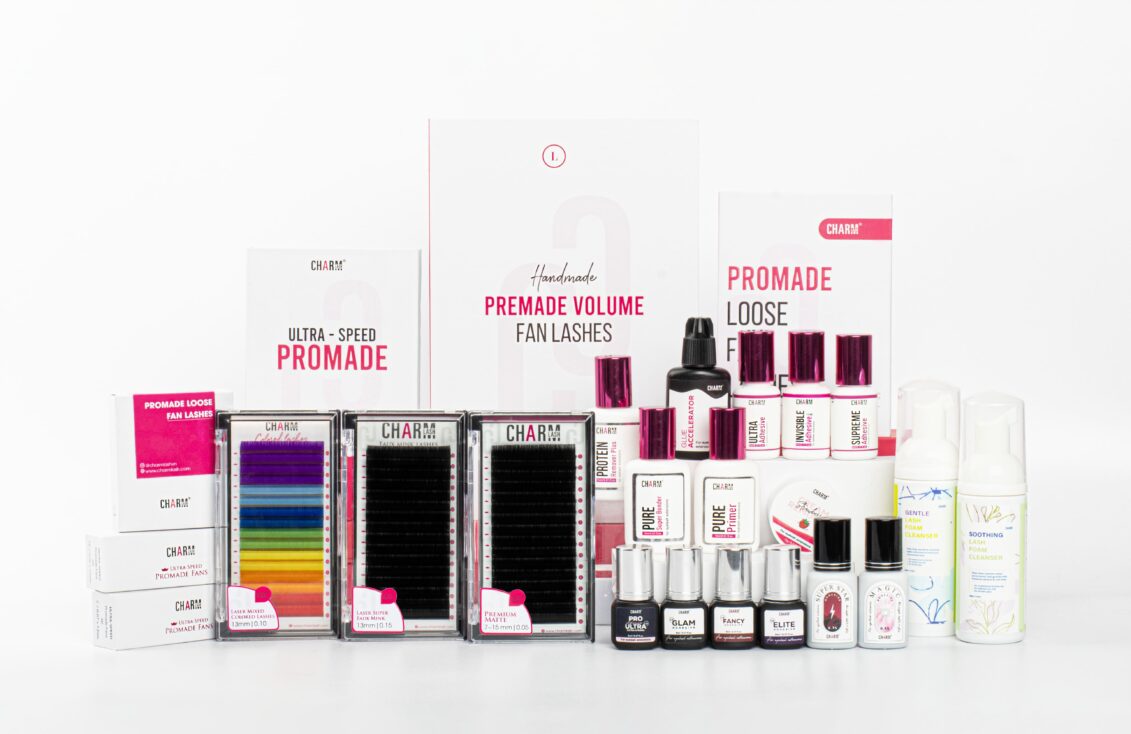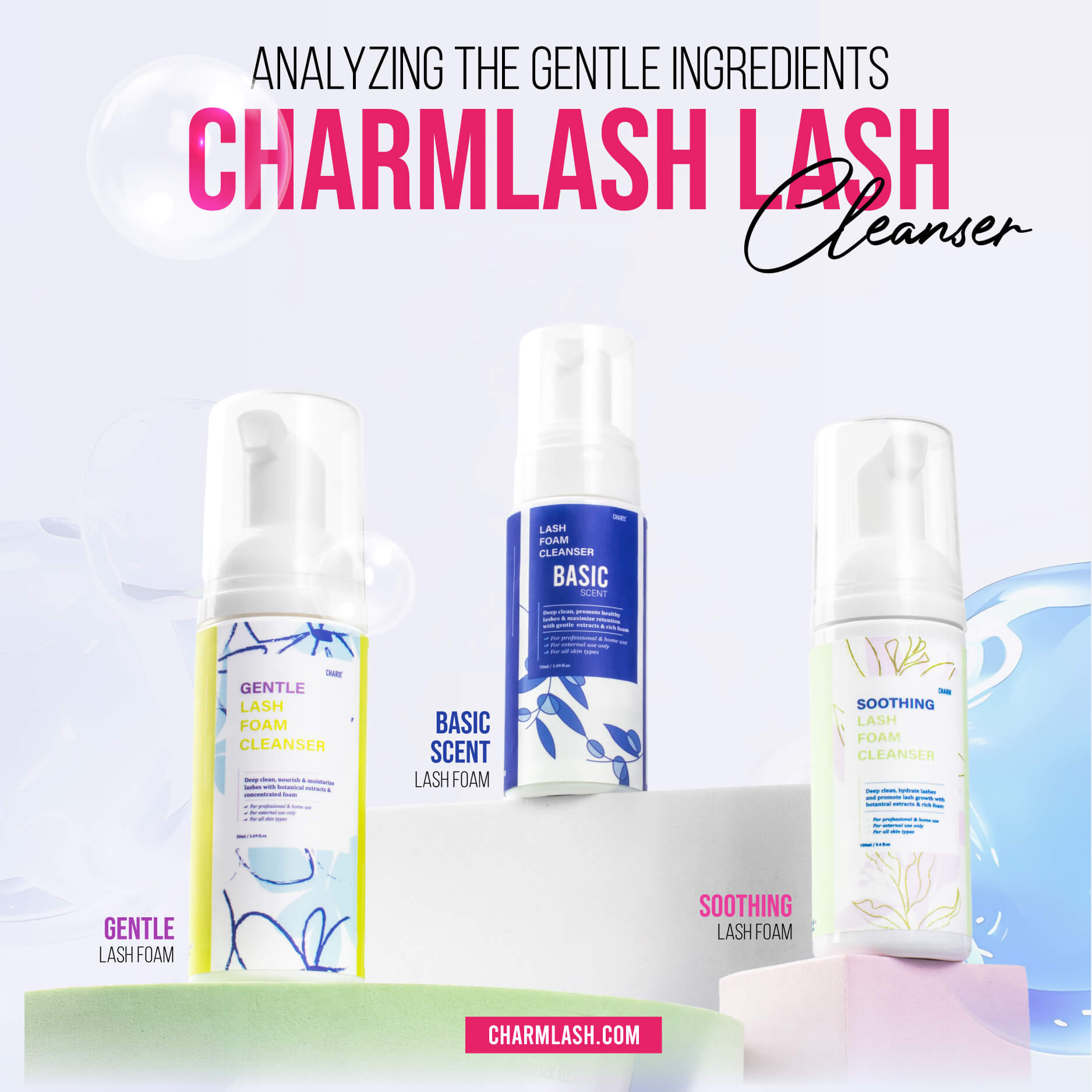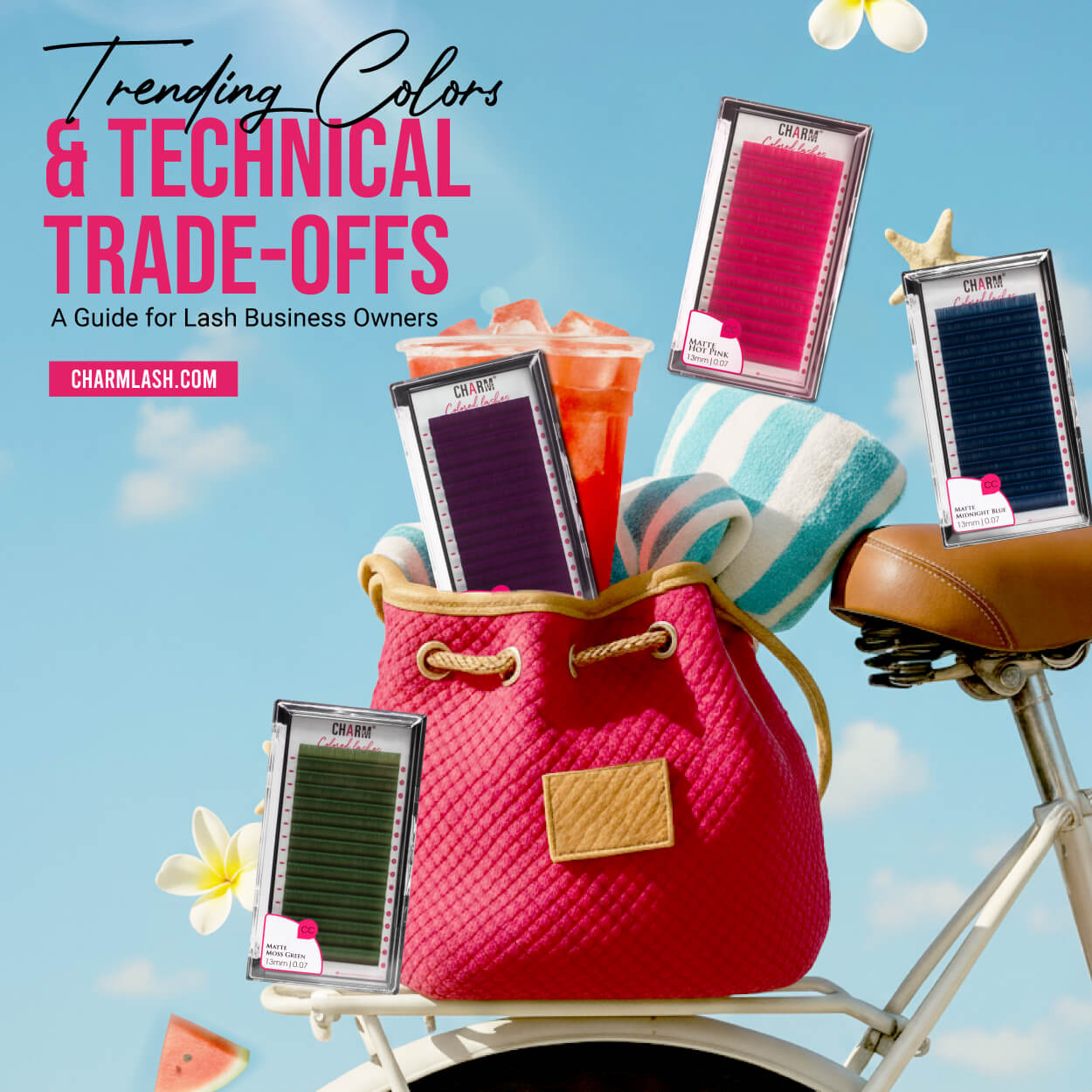Pregnancy is a time of joy, but it can also bring a lot of questions, especially when it comes to beauty treatments. One common question many pregnant women ask is whether it’s safe to get eyelash extensions while pregnant.
For those who love the look of fuller, longer lashes but are concerned about potential risks, this guide will explore the topic in detail, addressing the safety of lash extensions during pregnancy and offering helpful tips on how to get them done safely.

Can You Get Eyelash Extension While Pregnant?
The simple answer is yes, you can get eyelash extensions while pregnant. However, there are important factors to consider regarding safety, comfort, and potential allergic reactions. While eyelash extensions are generally considered safe, pregnancy can make your body more sensitive, leading to concerns about chemical exposure and physical discomfort.
Why You May Be More Sensitive to Eyelash Glue During Pregnancy?
You’re more sensitive because hormone levels are greatly changed during pregnancy, which might make your skin, eyes more sensitive and impact the natural eyelash growth cycle. Clients should be informed that lash extension retention might vary from their usual experience—lashes may shed faster during the first trimester but could last longer than normal in the second and third trimesters.
4 Risks to Consider
1. Allergic Reactions
Keep in mind that allergies can develop during pregnancy! Even if you’ve never had a reaction to eyelash extensions before, it’s possible to develop sensitivity or an allergic reaction to the lash glue while pregnant.
One of the primary concerns regarding eyelash extension while pregnant is the safety of the glue used. Most lash adhesives contain cyanoacrylate, a chemical that forms a bond when exposed to air. While cyanoacrylate is generally safe in small amounts, pregnant women should be cautious about exposure to fumes.
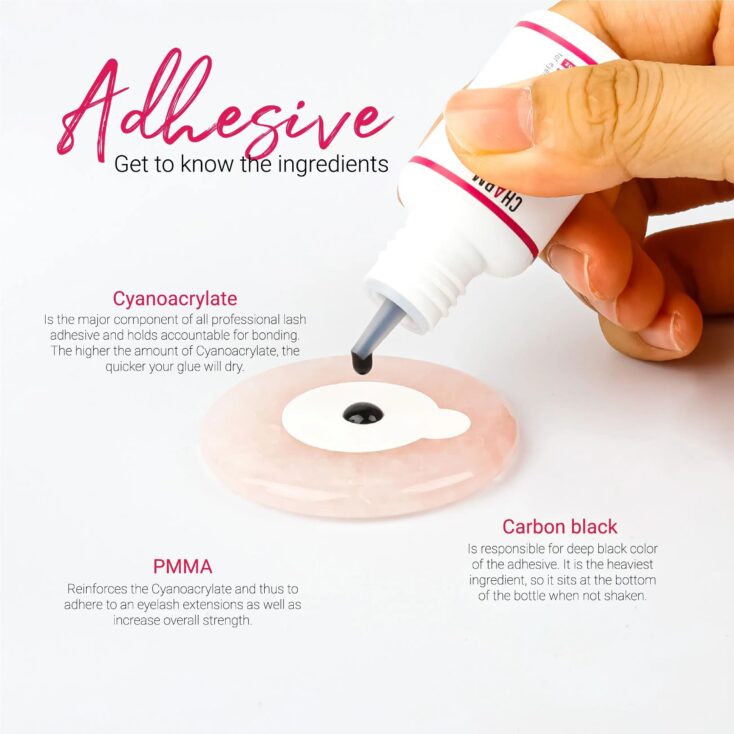
Learn more about lash glue ingredients in our comprehensive guide: Everything About Lash Glue.
While eyelash glue should never directly touch the skin, adhesive bonding to natural lashes or the use of eyepatches and tape can still lead to mild redness or irritation. This sensitivity is due to increased blood flow and the immune system working harder to support the growing baby.
Pro tips:
- Use low-fume or sensitive adhesives to ensure a more comfortable experience. You can consider using our Invisible Lash Adhesive (1-2s), a great choice for pregnant clients who have allergies to carbon black or latex.
- Ensure the treatment area is well-ventilated to minimize fume exposure.
- Apply a small amount of adhesive to a test area to check for any immediate reactions before starting the full application.
2. Sensitive to scents
During pregnancy, many women become more sensitive to scents, and the fumes from eyelash glue, which might not have been an issue before, can now cause discomfort. Prolonged exposure to the chemical scent of the adhesive during lash extension appointments may lead to nausea, dizziness, or general unease.

Pro tip: Using a fan to circulate air, taking breaks during the session can also help alleviate any feelings of nausea or dizziness.
3. Lying on your back
It’s hard for clients to get eyelash extension while pregnant, especially lying on their back for a long time during the treatment. In the second and third trimesters, lying on their back can compress a major blood vessel, leading to reduced blood flow, dizziness, or back pain. Therefore, after 20 weeks of pregnancy, it’s generally recommended to lie on your side during eyelash extension appointments to ensure safety and comfort.
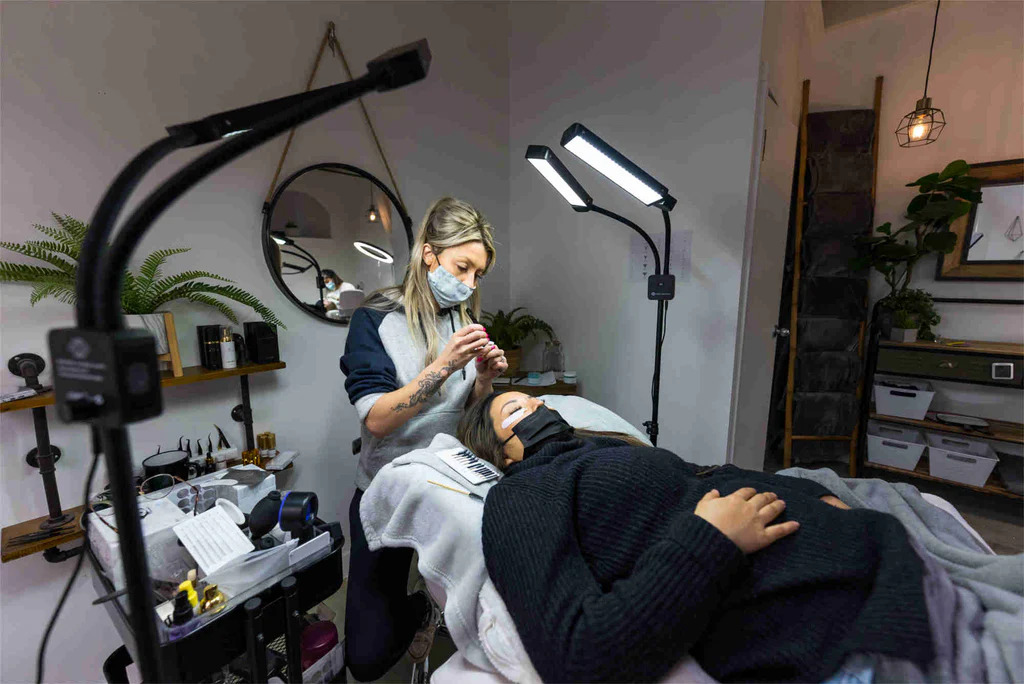
Pro tips:
- Set up a comfortable space for your client to lie on her side (the right side is preferred) rather than on her back. Position her with her head as straight as possible.
- Taking small breaks may be necessary and try to shift positions frequently. Consider adding an extra 30 minutes to the appointment to ensure her comfort.
- Body pillow can help enhance comfort throughout the session.
4. Retention and Lash Growth Circle
Pregnancy brings about hormonal fluctuations that can impact the lash growth and shedding of your eyelash extension while pregnant. These changes can influence lash retention and cause variations in how well lash extensions stay in place.
- Postpartum Hair Loss: After childbirth, the rapid drop in hormone levels often leads to postpartum hair loss. This sudden change can cause increased shedding of both natural lashes and extensions.
- Daily Lash Shedding: Losing one to five lashes daily is normal, influenced by factors like age, health, and lifestyle. This natural shedding process continues whether or not you are pregnant or have lash extensions.
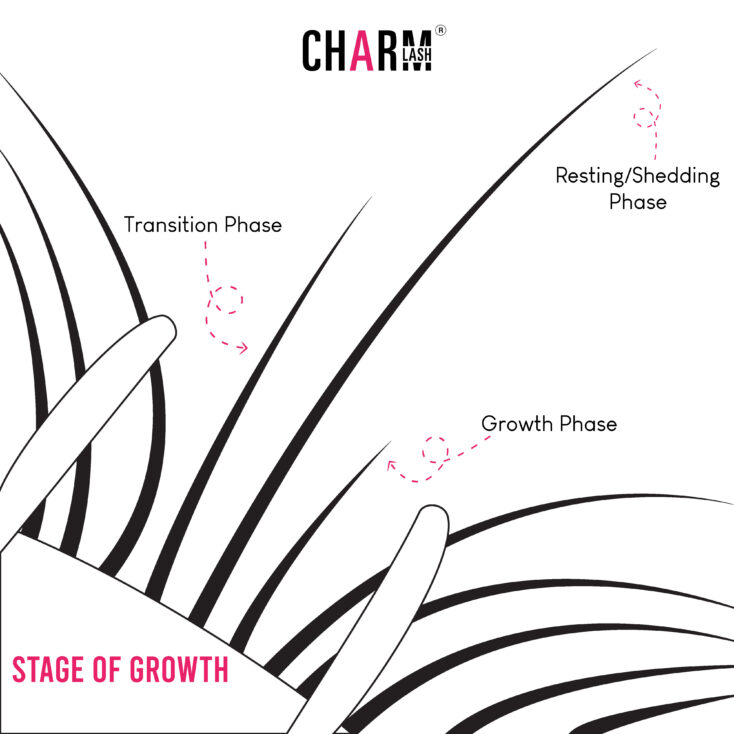
While significant changes in lash retention are more typical postpartum, some clients may notice similar effects during pregnancy due to hormonal shifts affecting their lash growth cycle.
Tips for Lash Artists Working with Pregnant Clients
When working with pregnant clients, being mindful and prepared can greatly enhance their experience. Here are some key tips to ensure a smooth and pleasant eyelash extension while pregnant:
- Consult with Clients: Have a detailed conversation with your pregnant clients about any concerns or discomfort they might experience. Discuss their preferences and any specific needs they have to ensure a comfortable and personalized experience.
- Use an Eyelash Station with a Glue Ring: Utilize a glue ring on your hand to streamline your process and avoid constantly reorganizing your workstation as your client shifts positions.
- Prepare for Temperature Fluctuations: Keep blankets on hand for when your client feels cold and a fan available for when they feel hot. Hormonal changes can cause temperature swings, so being prepared for both scenarios is essential.
- Have Nausea Remedies Ready: Clients might experience nausea during the session. Keep nausea candies on hand, water or other non-caffeinated beverages to help with nausea and keep hydrated.
- Post-Application Care: Advise your clients on how to care for their lash extensions after the appointment. Regular follow-ups can help address any concerns and ensure their comfort and satisfaction
- Regular Aftercare: Encourage clients to follow a gentle aftercare routine, avoiding excessive moisture and oil, which can weaken the adhesive bond. Regularly brushing the lashes with a clean spoolie can help keep them separated and prevent tangling.
- Health and Lifestyle: Remind clients that factors such as overall health, hydration, and nutrition can impact lash retention. A balanced diet and adequate hydration can support healthy lash growth and improve the longevity of eyelash extension while pregnant.
Recommended Products for Pregnant Clients
When doing eyelash extensions while pregnant, it’s crucial to use high-quality products to ensure safety and comfort. Here’s a list of recommended products from Charmlash:
- Primer: Use a gentle, high-quality primer to cleanse the natural lashes and remove any residual oils or debris. This helps improve the adhesive’s bond and enhances retention.
- Accelerator: Apply an accelerator to speed up the curing process of the adhesive. This reduces the risk of premature lash loss and ensures a quicker, more secure attachment.
- Super Bonder: Use a super bonder to neutralize the fumes from the adhesive, making the bonding process more flexible and improving overall retention. It also helps accelerate curing time.
- Adhesive: Opt for a low-fume, sensitive adhesive to minimize irritation and ensure a comfortable experience for pregnant clients. Magic Adhesive is a good choice for reducing fumes and enhancing comfort during eyelash extension applications.
- Lash Extensions: Choose premium lash extensions that are soft, lightweight, and suitable for the client’s natural lashes. At Charmlash, we provide a range of lash extensions that cater to different styles and preferences, ensuring both beauty and durability.

Choose Charmlash for high-quality and premium lash products when working with pregnant clients. Explore our best seller here.
FAQs
1. Will getting eyelash extensions affect my ability to breastfeed?
There is no evidence to suggest that lash glue affects breast milk or the body. As always, it’s crucial to use high-quality products.
2. Will getting eyelash extension while pregnant affect retention?
Hormonal fluctuations during pregnancy can affect hair growth cycles. Although these changes are usually not drastic enough to cause significant issues with lash retention during pregnancy, some individuals might notice slight variations in how their lashes hold extensions.
3. What should I do if I experience an allergic reaction to the eyelash adhesive during pregnancy?
If you suspect an allergic reaction, remove the extensions immediately and seek medical advice. Contact your healthcare provider or dermatologist for guidance on managing the reaction and alternative solutions.
Wrap-up
In conclusion, while pregnancy is a time of excitement and change, it doesn’t mean you have to forgo your beauty routines, including eyelash extensions. With the right precautions and high-quality products, it is possible to enjoy the look of fuller, longer lashes while keeping both you and your baby safe.
Remember to communicate openly with your lash technician about your pregnancy, follow aftercare recommendations, and be aware of any changes in lash retention. With these considerations in mind, you can confidently enjoy your eyelash extension while pregnant, adding a touch of glamour to this exciting time in your life!
Stay tuned for more lash beauty tips by following us on Instagram!










